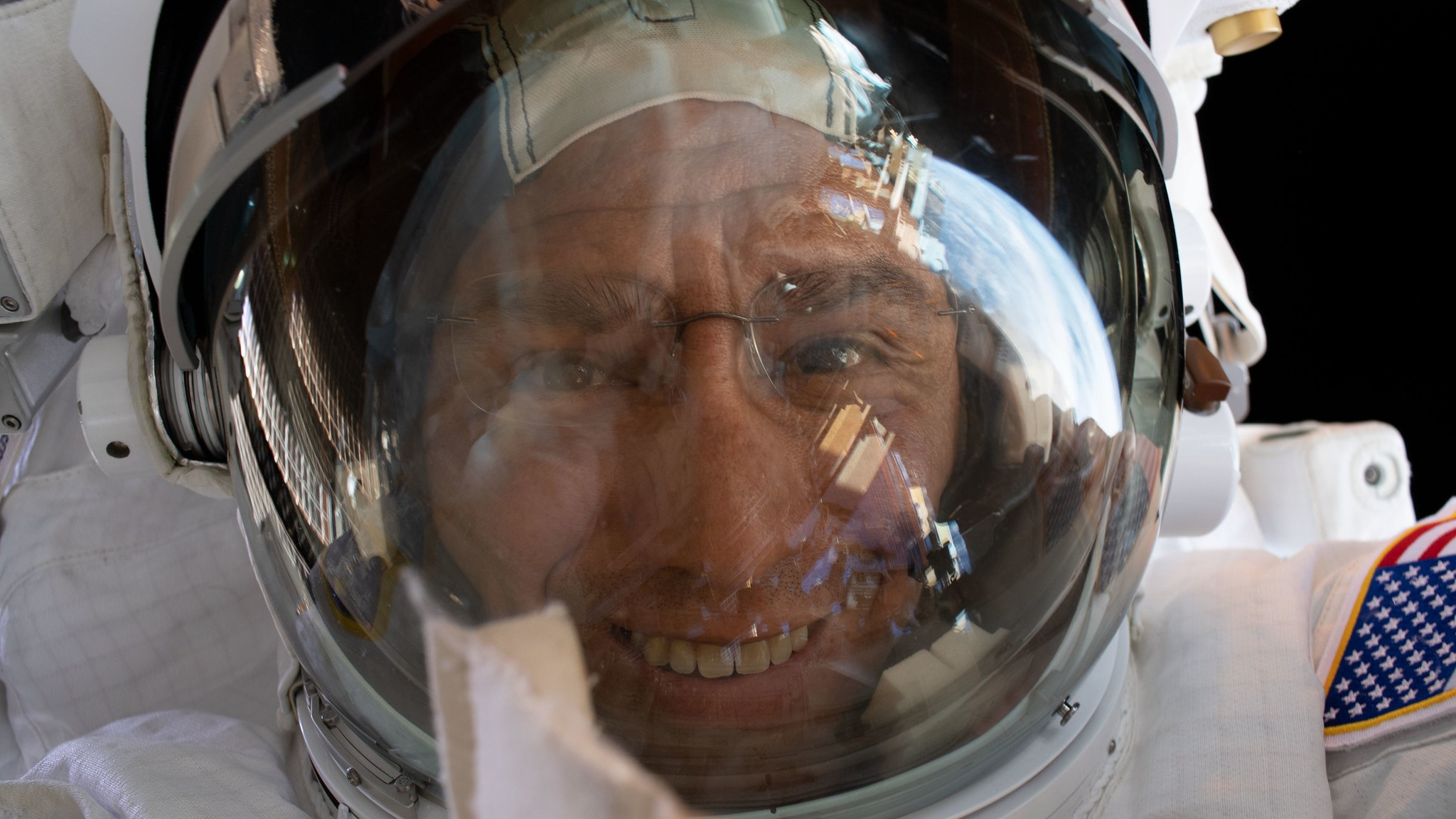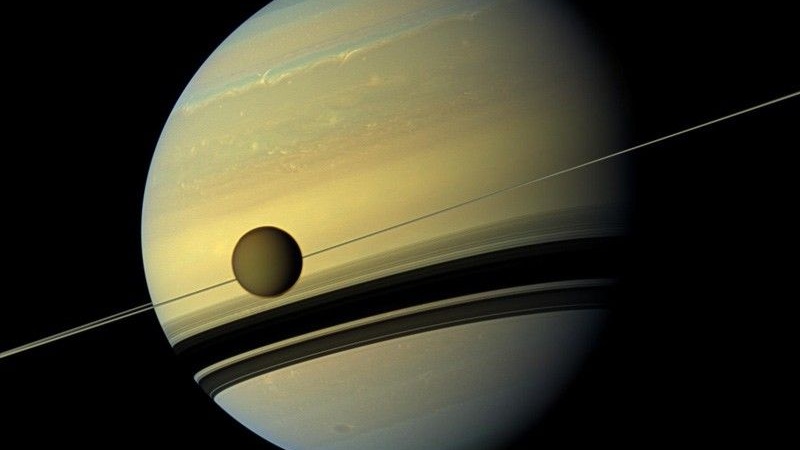NASA astronaut Frank Rubio considers himself 'incredibly lucky' after accidental 1-year ISS stay
The astronaut got through with a little help from his friends, family and community.

Breaking space news, the latest updates on rocket launches, skywatching events and more!
You are now subscribed
Your newsletter sign-up was successful
Want to add more newsletters?

Delivered daily
Daily Newsletter
Breaking space news, the latest updates on rocket launches, skywatching events and more!

Once a month
Watch This Space
Sign up to our monthly entertainment newsletter to keep up with all our coverage of the latest sci-fi and space movies, tv shows, games and books.

Once a week
Night Sky This Week
Discover this week's must-see night sky events, moon phases, and stunning astrophotos. Sign up for our skywatching newsletter and explore the universe with us!

Twice a month
Strange New Words
Space.com's Sci-Fi Reader's Club. Read a sci-fi short story every month and join a virtual community of fellow science fiction fans!
NASA astronaut Frank Rubio says spending an extra six months in space made him better at the job than before.
Rubio, who unexpectedly spent more than a year on the International Space Station (ISS), did periodic self-assessments to be more efficient as his time in space accrued, he told Space.com during a livestreamed press conference Friday (Oct. 13) from NASA's Johnson Space Center in Houston.
"I was able to ... see what things things I had done well, what things I had done poorly and try to improve on those for the next half of the expedition," Rubio said. He emphasized that he still wasn't perfect but was "incredibly lucky in the fact that you're able to take those lessons learned and immediately implement them. A lot of people have to wait five, six or 10 years [for a second mission] until they are able to implement those things that they just learned."
Rubio accidentally broke a U.S. record for spaceflight, spending 371 continuous days in space after his Russian Soyuz spacecraft sprung a leak in December 2022 while docked to the ISS. After a complicated series of spaceship schedulings, Rubio and Russian cosmonauts Sergey Prokopyev and Dmitri Petelin safely arrived home on Sept. 27 in a replacement craft, six months past their originally planned arrival date.
The leak that stalled Rubio's Soyuz was the first of three coolant problems for Russian ISS hardware in the last year. Following that incident, a Progress cargo spacecraft sprang a leak in February 2023, also during Rubio's mission; the Russian federal space agency Roscosmos has said both Rubio's Soyuz and the Progress were likely damaged by micrometeoroid strikes.
A new coolant leak arose this week with Russia's Nauka module as well. A 13-year-old backup radiator on the two-year-old science hub ejected coolant into space on Monday (Oct. 9) for reasons that are still unclear. Nauka remains working well and the leak has stopped, but the event delayed two U.S. spacewalks as NASA took precautions, preferring to wait until Russia continues its investigation.
Breaking space news, the latest updates on rocket launches, skywatching events and more!
Rubio said his military background helped in adjusting to the extended stay, and he had perspective from other "friends and family that have been under much more duress and much more difficult conditions" while serving the country.
"It was somewhat difficult to feel sorry for myself in that situation, but that's not to say we didn't have a couple of hard days," he said. But as Rubio and his family absorbed the news, help came through. "The community around us was just, gosh — they had so much, prayers and support. It was really almost overwhelming, how much love and support we've received. So from that perspective, it made it incredibly easy."
"Unfortunately, I don't have a whole lot of detail on the most recent, third incident," Rubio said of the Nauka leak. "If they do happen to be related," he added, "maybe there's a change in the environment for them (the leaks) to happen this relatively close together."
Mission controllers in both Houston and Moscow, he emphasized, "are doing an incredible amount of analysis to going get to the root cause. And like they did for us, they're going to come up with a great plan to make sure that crew safety is paramount to everybody on the team. That just overrides everything."
While much of Rubio's time in space was spent dealing with the unexpected, there was still time for a little fun. Rubio provided an update on a missing (and ziplocked) dwarf tomato he accidentally lost on-station shortly after the harvest, when it unexpectedly floated away.
Despite "18 to 20 hours of my own time looking for that tomato" — a figure he may have been exaggerating for humor's sake — it never showed up.
"The reality of the problem, you know — the humidity up there is like 17%. It's probably desiccated to the point where you couldn't tell what it was, and somebody just threw away the bag," Rubio lamented, laughing. "Hopefully somebody will find it someday: a little, shriveled thing."

Elizabeth Howell (she/her), Ph.D., was a staff writer in the spaceflight channel between 2022 and 2024 specializing in Canadian space news. She was contributing writer for Space.com for 10 years from 2012 to 2024. Elizabeth's reporting includes multiple exclusives with the White House, leading world coverage about a lost-and-found space tomato on the International Space Station, witnessing five human spaceflight launches on two continents, flying parabolic, working inside a spacesuit, and participating in a simulated Mars mission. Her latest book, "Why Am I Taller?" (ECW Press, 2022) is co-written with astronaut Dave Williams.
